Trust – a small word that means so much. It is a word that plays an enormous part in all our lives. A word that epitomises our start in life – from the minute we enter in to the world, we immediately have complete trust in the people who care for us. As we grow up we learn to trust in a wider sphere of people – our families and friends, as well as respected figures in our communities such as doctors, teachers and religious leaders. We learn to trust in the things people tell us – in opinions and perspectives. We start to trust organisations that we interact with. The majority of us are fortunate to be brought up in way that we understand what trust means. For all these reasons, it is 100% clear to me why I believe that trust is the embodiment of customer experience. We grow to inherently believe it exists, and as such expect it to be present when we experience the things we do.
The fact that I am writing this blog post regrettably is a reflection of the fact that the very thing we instinctively have when we are brought in to the world, is continually being eroded away by the attitudes and behaviours of our modern society. When it comes to the world of customer experience, it would be fair to say that the consumer no longer knows who to trust. Let me ask you a few random questions:
- Do you trust your bank to treat you fairly?
- Do you trust your clothing retailer to sell you clothes that are made ethically?
- Do you trust your food retailer to sell you food that is exactly as it states on the packaging?
- Do you trust your mechanic to give you a fair price for repairing your car?
- Do you trust your newspaper to tell you the truth?
- Do you trust your online shopping to arrive at the time you expect?
- Do you trust your local council to do what is best?
- Do you trust your government to do what is right?
- Do you trust anyone who comes to your door in order to sell you something?
- Do you trust the companies you transact with to put you, the customer, first?
In times gone by, we may well have been able to answer ‘yes’ to many (if not all) of these questions. It is a sad fact that we may well now answer ‘no’ to the majority of them. The Oxford English Dictionary defines trust as:
“The firm belief in the reliability, truth, or ability of someone or something”
Are we able to apply this definition to the companies with which we have experiences? It is very difficult today to talk about business that we absolutely trust to do the right thing. Many are trying. One of the UK’s largest food retailers, Morrisons, is attempting to get its customers to trust it to sell good quality meat that comes from reliable British sources. Whilst we still feel the effects of the horsemeat scandal, their campaign may well help the consumer to get a little confidence back.
British banks have a lot more work to do in order to get the consumer to trust them again. This week alone, the leaders of one of our failed banks has offered to return his Knighthood in recognition of the banks ails. For so long the consumer has been taken for granted – it will take a very long time before we trust the financial services sector again.
Every industry is affected by trust. Just today, four Japanese car makers have recalled 3.4 million cars over a defect in passenger airbags (http://www.bbc.co.uk/news/business-22104702). The culture that created the most robust process methodologies the world has ever seen, are also now in the firing line.
Failing to deliver an experience that can be trusted can have far greater consequences today than in years gone by. The best example of this is the now world famous ‘United Breaks Guitars’ story, and Dave Carroll’s mission to expose that lack of care and respect United Airlines gave him as a customer. As of today, the video he posted on YouTube about his experience has been viewed almost 13 million times. The damage to United Airlines is probably immeasurable (https://www.youtube.com/watch?v=5YGc4zOqozo).
Whilst my words have focussed very much on the lack of trust, we should start to focus on how to earn it – and in a lot of cases, how to get it back. I believe that it is possible to create the ‘trust equation’ for organisations to align to.
The equation looks at four things:
- Honesty
- Reliability
- Consistency
- Care
Let us have a quick look at these in turn. Honesty – consumers just want organisations to be honest. Just tell me the truth. Do what you say you are going to do. Do not try and hide anything. Consumers also expect that organisations will not get things right 100% of the time – so just be honest with me when you get it wrong, and address the issue. How many businesses that you deal with are honest?
Reliability – we all want the businesses we deal with to be reliable. We want to know that things will work as they should. I wanted to buy a specific clothing item from a small independent retailer the afternoon before I was due to go on holiday. I arrived at the shop to find it closed. It was 4:15pm. On the door, in big letters it stated that the shop closed at 5:00pm every day. Reliable? Not only did the retailer miss out on that purchase, they will not be given the opportunity to get another.
Consistency – this is vital in delivering an experience that the consumer will trust. If you are able to deliver a consistent experience, your consumer will be far more likely to keep coming back. The bigger the brand, the harder this is to do. Premier Inn is a hotel brand that is starting to excel in the consistency arena. Every Premier Inn is the same – it looks, feels and behaves the same. By contrast, Holiday Inn, a brand that I am a fan of, delivers inconsistent experiences depending on the hotel. I have stayed a lot in their Hotel near Darlington – it is very consistent and a pleasure. Their hotel in Walsall was a shambles. I expect the same every time I stay in a Holiday Inn.
Care – this is the final but of the trust equation. If you are able to achieve the first three elements, you are in great shape. But it is possible to be honest, reliable and consistent without caring. As a consumer, I want to know that the company I deal with cares about me. They recognise the importance of me as a customer. If not, it is unlikely that I will build an emotional connection with that company. If that does not happen, the likelihood of me recalling my experiences is minimal. One could argue that Ryanair are a brand that sums this up. They are very honest in what they do. They are very reliable (the most in their industry) and consistent. But do they care?
I believe that Trust is the embodiment of customer experience. I believe that if organisations do not embrace Trust, and work hard to ensure that they deliver experiences that can be trusted; they will fail to be able to attract and keep the customers they exist to serve. Companies that we can trust will be the real winners as our fast changing world powers on.





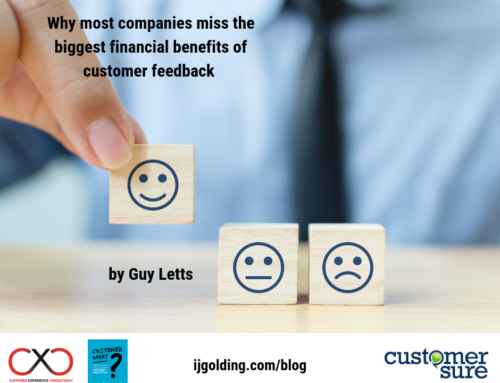
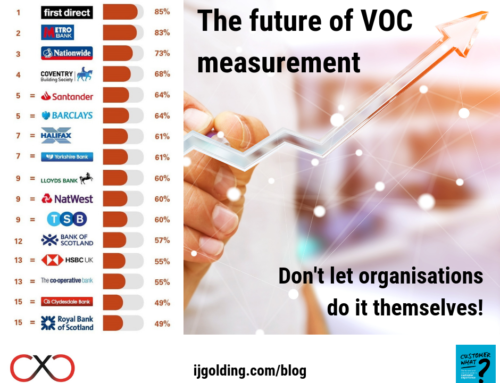
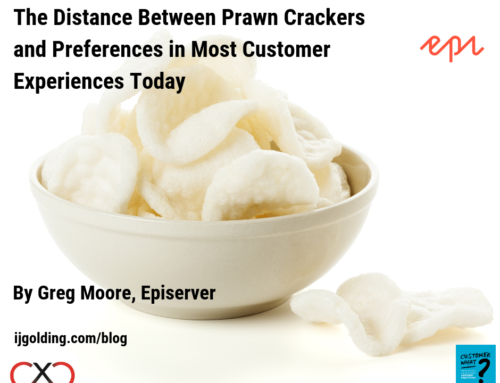
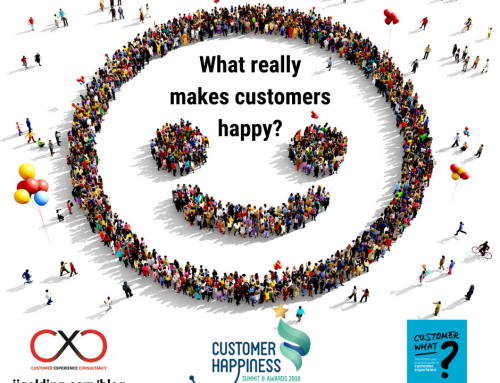
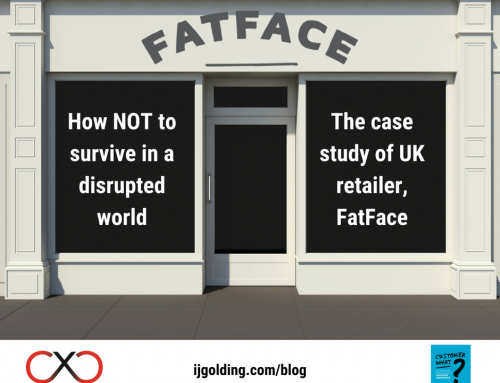
I like your ‘trust equation’ Ian but can I suggest you add another important aspect – Integrity. Orgaisations can be honest, reliable, consistent and caring but if there is no integrity to their actions then it all appears a bit, how can I define it….shallow? And trust is built on a number of layers, one of which is the moral compass of an organistion or individal. Not sure where it needs to go in your equation though – that’s your job 🙂
I love it Steve, and completely agree. I have no qualms in creating an equation that Einstein himself would have been proud of!
[…] their business and their lives, is by borrowing some words and a formula from a recent blog on Trust, by my friend and fellow customer experience aficionado, Ian […]